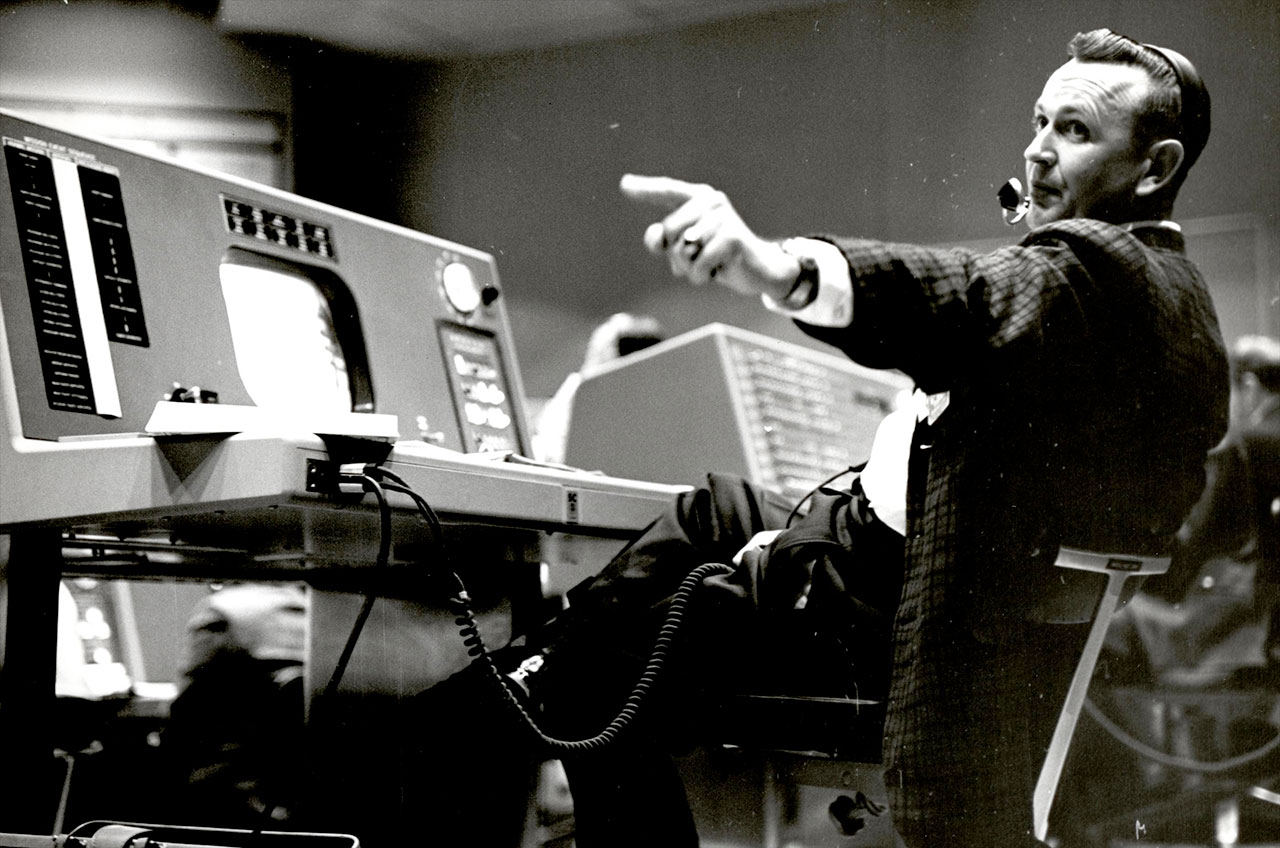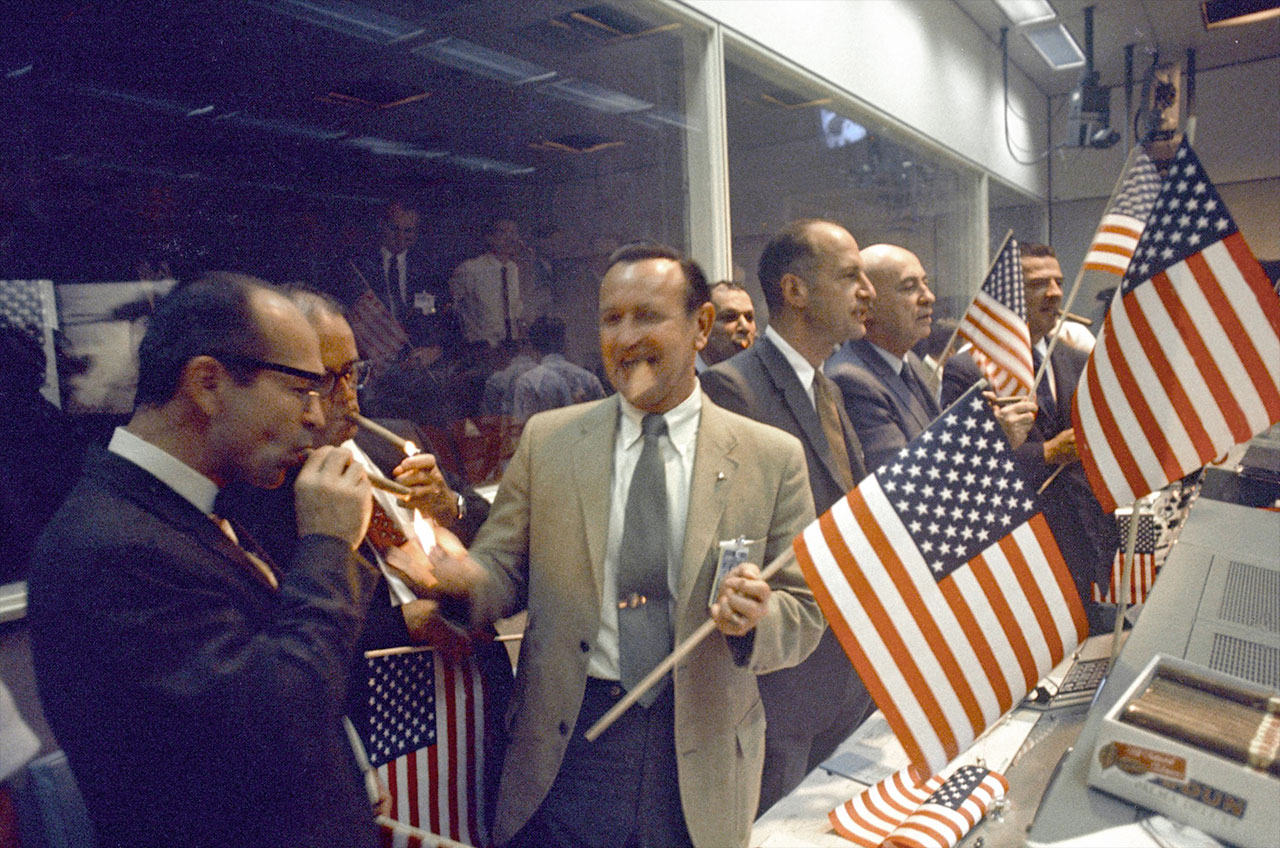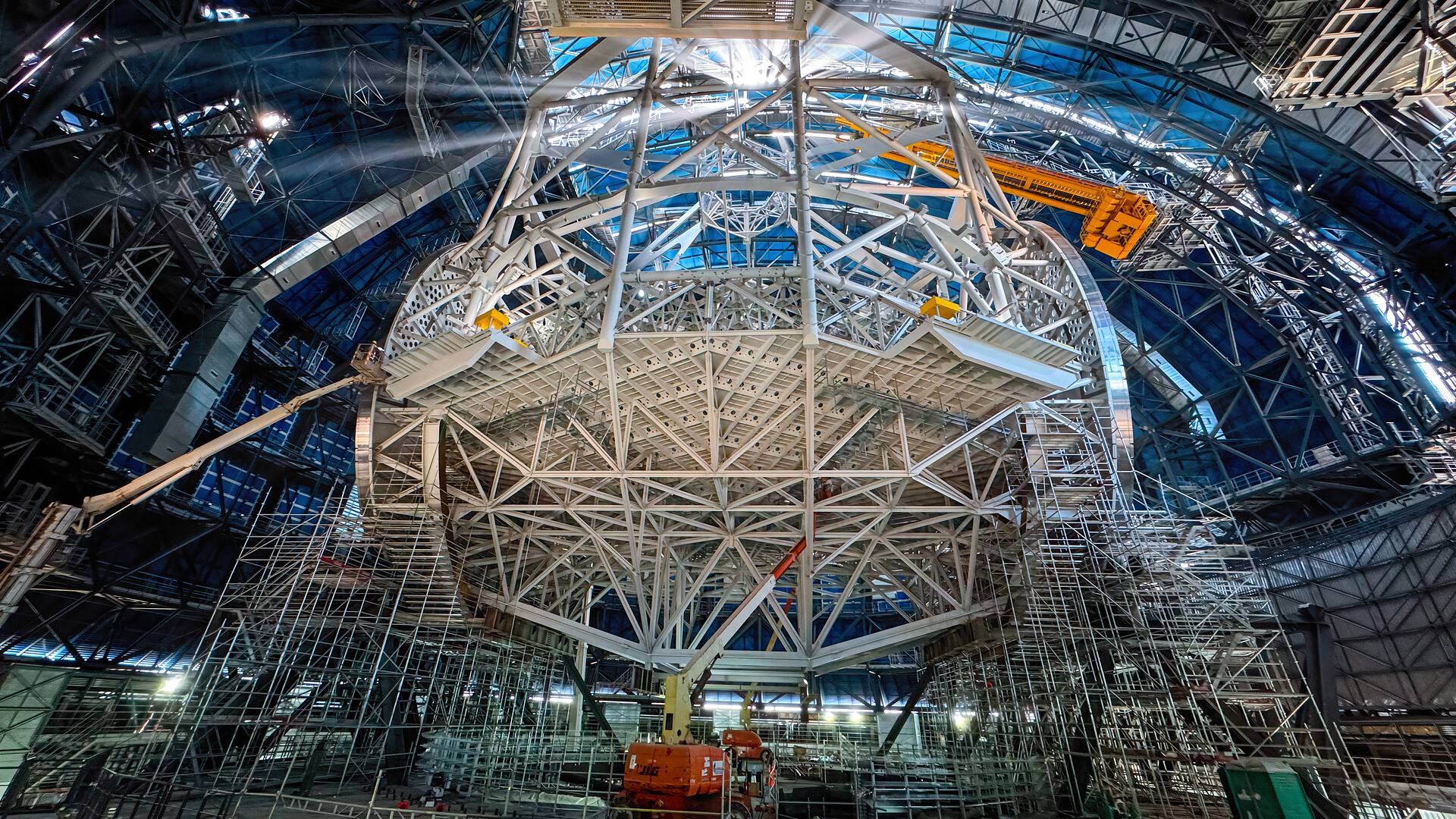Chris Kraft, NASA's First Flight Director and Father of Mission Control, Dies at 95
Breaking space news, the latest updates on rocket launches, skywatching events and more!
You are now subscribed
Your newsletter sign-up was successful
Want to add more newsletters?

Delivered daily
Daily Newsletter
Breaking space news, the latest updates on rocket launches, skywatching events and more!

Once a month
Watch This Space
Sign up to our monthly entertainment newsletter to keep up with all our coverage of the latest sci-fi and space movies, tv shows, games and books.

Once a week
Night Sky This Week
Discover this week's must-see night sky events, moon phases, and stunning astrophotos. Sign up for our skywatching newsletter and explore the universe with us!

Twice a month
Strange New Words
Space.com's Sci-Fi Reader's Club. Read a sci-fi short story every month and join a virtual community of fellow science fiction fans!
Chris Kraft, NASA's first flight director who invented the concept of Mission Control, has died. He was 95.
Kraft's death in Houston on Monday (July 22) was confirmed by NASA.
"America has truly lost a national treasure today with the passing of one of NASA's earliest pioneers," Administrator Jim Bridenstine said in a statement. "We send our deepest condolences to the Kraft family."
"Chris was one of the core team members [who] helped our nation put humans in space and on the moon, and his legacy is immeasurable," said Bridenstine.
A member of the 1958 Space Task Group that was charged with managing the United States' burgeoning human spaceflight programs, Kraft was named NASA's first flight director with the responsibility of not only defining the position's role, but also how mission planning and operations would be conducted.
Beginning with the first launch of a Mercury astronaut into space, Kraft developed the processes for go-no-go decisions, space-to-ground communications, mission tracking, real-time problem solving and crew recovery.
"Mercury Control was our first classroom, Chris was our first teacher and mentor," said Gene Kranz, one of the first three flight directors who Kraft chose to succeed him in the role, speaking at the 2011 naming of NASA's Mission Control Center in Houston, Texas, for Kraft. "Chris was our leader, his call sign was 'Flight.' Integrity was his hallmark."
Breaking space news, the latest updates on rocket launches, skywatching events and more!
From 1961 to 1966, Kraft served as Flight for many historic missions, including the first launch to put an American astronaut into Earth orbit and the first spacewalk of the Gemini program. During the later phases of the Mercury program, Kraft helped develop the Manned Spacecraft Center (MSC; renamed the Lyndon B. Johnson Space Center in 1973) in Houston, and then moved there in 1962, along with other members of the Space Task Group.
"Once comparing his complex work as a flight director to a conductor's, Kraft said, 'The conductor can't play all the instruments — he may not even be able to play any one of them. But, he knows when the first violin should be playing, and he knows when the trumpets should be loud or soft, and when the drummer should be drumming. He mixes all this up and out comes music. That's what we do here,'" said Bridenstine, citing the late flight director.
During the Apollo program, Kraft was promoted to Director of Flight Operations and given responsibility for the overall mission planning, training and execution of human spaceflight at NASA. He continued in this role through the first and second moon landing missions in 1969, before becoming deputy director of the Manned Spacecraft Center.
Kraft later served as MSC (and then Johnson Space Center) director from January 1972 until his retirement in August 1982, adding to the success of the remaining Apollo missions; the first U.S. space station, Skylab; the first joint mission carried out with the Soviet Union, the Apollo-Soyuz Test Project; and the first missions of the space shuttle.
Born on Feb. 28, 1924, in Phoebus (now part of Hampton), Virginia, Christopher Columbus Kraft, Jr. inherited his name from his father. He would later write that with the choice of his name "some of my life's direction was settled from the start."
Kraft attended Virginia Polytechnic Institute (now Virginia Tech) and enrolled in mechanical engineering in 1941. After being declared unfit for military service as a result of a severe burn suffered to his right hand when he was three years old, Kraft graduated with one of the first aeronautical engineering degrees awarded by the institute in 1944.
Following a short-lived position at Chance Vought in Connecticut, Kraft joined the National Advisory Committee for Aeronautics (NACA), the predecessor to NASA, at the Langley Memorial Aeronautical Laboratory in Virginia in 1945. There, he served as project engineer for the P-51H, an advanced version of the Mustang single-seat fighter and fighter-bomber. He also conducted analytical work on gust alleviation and directed a study on the wake turbulence caused by trailing vortices.
Kraft was then assigned as project engineer for the Navy's Vought F8U Crusader jet aircraft, which was exhibiting unacceptable g-force control behavior during test flights at Langley. Working with test pilot Jack Reeder, Kraft was able to identify the structural source of the problem and advised the Navy of such. His warnings were heeded, resulting in the F8U being redesigned before serving as a fighter jet during the Vietnam War.
After his 24 years of service at NASA, Kraft consulted for IBM and Rockwell International, served as a director-at-large of the Houston Chamber of Commerce and as a member of the Board of Visitors at Virginia Tech. In 2001, he published an autobiography entitled "Flight: My Life in Mission Control," which became a New York Times bestseller.
For his contributions to the early space program, Kraft was awarded the NASA Outstanding Leadership Medal, four NASA Distinguished Service Medals and the 1979 Goddard Memorial Trophy bestowed by the National Space Club. In 1999, he was presented the Rotary National Award for Space Achievement (RNASA) for being a "driving force in the U.S. human spaceflight program, from its beginnings to the space shuttle era, a man whose accomplishments have become legendary."
In April 2011, NASA named its Mission Control Center at the Johnson Space Center in Kraft's honor. The Christopher C. Kraft, Jr., Mission Control Center continues to be active, operating after more than 50 years in support of space missions.
"I am pleased as I can be to have you name this building after me," said Kraft at the time. "Not because it's for me, but because it is for the flight control people and for those people here at the Johnson Space Center."
Kraft is survived by his wife of 68 years, Betty Anne Turnbull and children Gordon and Kristi-Anne.
ollow collectSPACE.com on Facebook and on Twitter at @collectSPACE. Copyright 2019 collectSPACE.com. All rights reserved.

Robert Pearlman is a space historian, journalist and the founder and editor of collectSPACE.com, a daily news publication and community devoted to space history with a particular focus on how and where space exploration intersects with pop culture. Pearlman is also a contributing writer for Space.com and co-author of "Space Stations: The Art, Science, and Reality of Working in Space” published by Smithsonian Books in 2018.
In 2009, he was inducted into the U.S. Space Camp Hall of Fame in Huntsville, Alabama. In 2021, he was honored by the American Astronautical Society with the Ordway Award for Sustained Excellence in Spaceflight History. In 2023, the National Space Club Florida Committee recognized Pearlman with the Kolcum News and Communications Award for excellence in telling the space story along the Space Coast and throughout the world.



